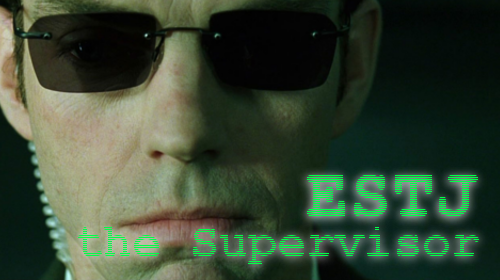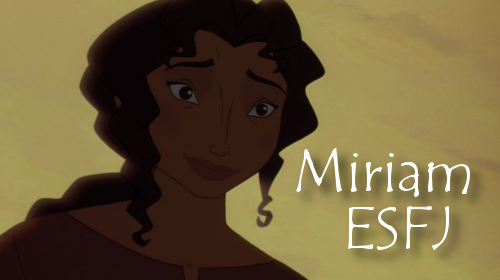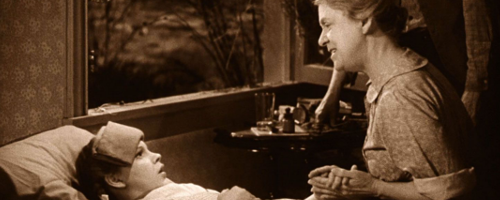 ESTJ, the Supervisor, the Achiever, the Director
ESTJ, the Supervisor, the Achiever, the Director
The Wachowskis call Hugo Weaving their “dark muse.” If you love him here as the droll and vicious Agent Smith, you have to watch him play not one, not two, but six despicable villains in the Wachowskis’ most recent film, Cloud Atlas.
Dominant Function: Te/Extraverted Thinking, “Organize the Experience”
 Agent Smith leads the three agents who are looking for Neo (the other two being Brown and Jones), and he won’t stop until the job is done. When the cops corner Trinity at the start of the movie, Smith shows up and immediately takes charge of the situation. “Your men are already dead,” he informs the lieutenant bluntly.
Agent Smith leads the three agents who are looking for Neo (the other two being Brown and Jones), and he won’t stop until the job is done. When the cops corner Trinity at the start of the movie, Smith shows up and immediately takes charge of the situation. “Your men are already dead,” he informs the lieutenant bluntly.
Smith remains cool and in control even when interrogating an obstinate Neo. He repeatedly refers to Neo by his given name, “Thomas Anderson,” trying to force Neo into accepting the Matrix’s version of himself. He tells Neo that one of his selves has a future, and one does not. Smith is determined to shape Neo’s life according to his—and the Matrix’s—will.
Smith also seems to like to hear himself talk. He voices his thoughts and opinions in long soliloquies like the one he delivers to Morpheus during the interrogation. He believes he has humanity figured out and classified, and sees all the humans living in the Matrix as a chaotic zoo in need of order.
Auxiliary Function: Si/Introverted Sensing, “Relive the Experience”
 Agent Smith exists solely to maintain the order and function of the Matrix. Anything, or anyone, that falls outside that order must be put back into place. When he makes his speech to Morpheus, he compares humans to other life forms he’s known of, slyly making the observation that he believes we act more like viruses than mammals. He also compares us to the dinosaur, a being whose time has come and gone. It’s on these comparisons that he bases his superiority complex over Morpheus and other humans. Continue reading
Agent Smith exists solely to maintain the order and function of the Matrix. Anything, or anyone, that falls outside that order must be put back into place. When he makes his speech to Morpheus, he compares humans to other life forms he’s known of, slyly making the observation that he believes we act more like viruses than mammals. He also compares us to the dinosaur, a being whose time has come and gone. It’s on these comparisons that he bases his superiority complex over Morpheus and other humans. Continue reading






